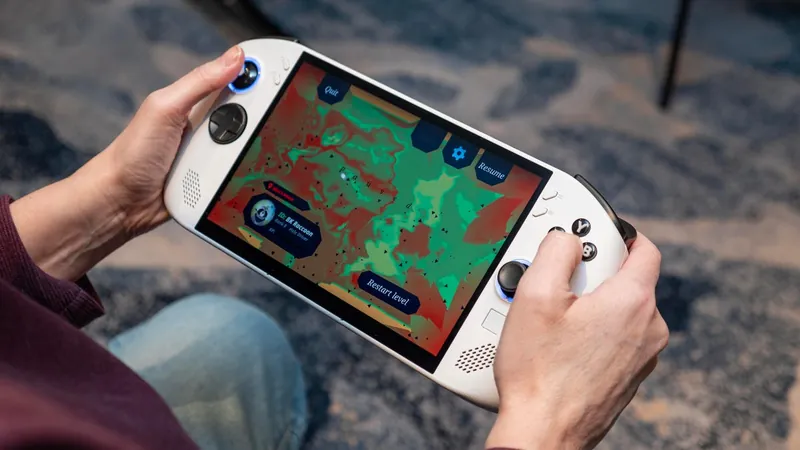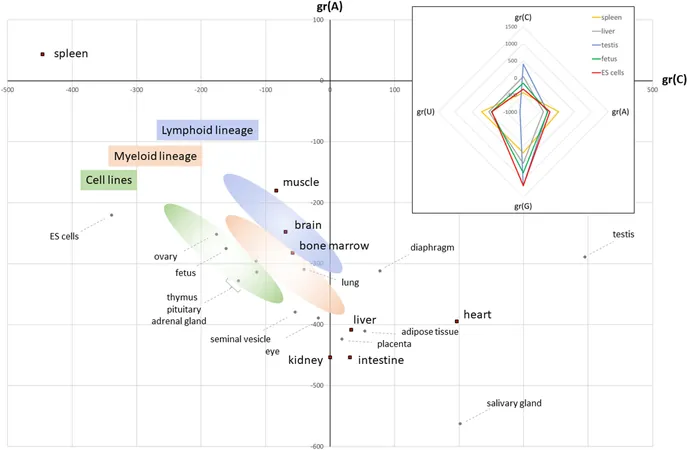
Is the Xbox Handheld Revolution Finally on the Horizon?
2025-01-07
Author: Wei
The gaming landscape is evolving rapidly, and it looks like it’s almost time for Microsoft to join the handheld gaming revolution. At this year’s CES, a plethora of impressive Windows-based gaming handhelds are making waves. Devices like Acer's new 8- and 11-inch models and the Lenovo Legion Go S are garnering attention and showing that the potential for portable gaming on Windows is almost at our fingertips.
The Lenovo Legion Go S is particularly noteworthy, offering two variations: one powered by Windows and another featuring Valve's SteamOS. The SteamOS model operates similarly to the beloved Steam Deck, which has gained a massive following for its user-friendly interface, extensive library of compatible games, and impressive performance. As a proud owner of a Steam Deck myself, I can attest to its straightforward usability and impressive optimization, which enables an expansive array of games to run seamlessly.
However, this isn't the reality for Windows-based handhelds. My past experiences with gaming on Windows devices have been less than stellar. While Windows provides great flexibility for customization and running various applications, the gaming experience can feel disjointed. The current custom software solutions do not achieve the same level of elegance as what is found in SteamOS.
Interestingly, Microsoft has expressed interest in creating an Xbox-branded gaming handheld. Phil Spencer, the head of Xbox, has hinted at the necessity for Windows handhelds to channel more of the Xbox experience. But here’s the rub: why haven’t we seen substantial progress in that direction?
Despite Microsoft's initiatives to bring the Xbox experience to various devices—your TV, phone, and more—the current Windows handhelds still lack that essential Xbox feel. While it’s possible to play Xbox games through cloud streaming on these devices, the absence of a seamless and user-friendly Xbox interface detracts from the experience.
One can argue that if Valve can effectively implement a well-designed gaming environment for their Steam Deck, then Microsoft should be able to do the same. The demand is certainly there, especially with the anticipated launch of the more powerful Nintendo Switch 2 looming on the horizon. Gamers are ready and looking for accessible, optimized gaming on the go, which leaves us wondering: will Microsoft seize this opportunity, or will they remain hands-off, leaving consumers with limited choices?
As CES draws to a close and we head into 2025, the time for action is now. The hardware is primed, and gamers are hungry for a robust Xbox handheld experience. If Microsoft doesn’t move forward with an Xbox-centric software solution soon, we may find ourselves surrounded by Steam Decks, while the dream of portable Xbox gaming slips away.
Is this the dawn of a new era for Xbox handhelds, or will the potential remain untapped? The choice is ultimately in Microsoft's hands. Let’s hope they don’t let us down!



 Brasil (PT)
Brasil (PT)
 Canada (EN)
Canada (EN)
 Chile (ES)
Chile (ES)
 Česko (CS)
Česko (CS)
 대한민국 (KO)
대한민국 (KO)
 España (ES)
España (ES)
 France (FR)
France (FR)
 Hong Kong (EN)
Hong Kong (EN)
 Italia (IT)
Italia (IT)
 日本 (JA)
日本 (JA)
 Magyarország (HU)
Magyarország (HU)
 Norge (NO)
Norge (NO)
 Polska (PL)
Polska (PL)
 Schweiz (DE)
Schweiz (DE)
 Singapore (EN)
Singapore (EN)
 Sverige (SV)
Sverige (SV)
 Suomi (FI)
Suomi (FI)
 Türkiye (TR)
Türkiye (TR)
 الإمارات العربية المتحدة (AR)
الإمارات العربية المتحدة (AR)